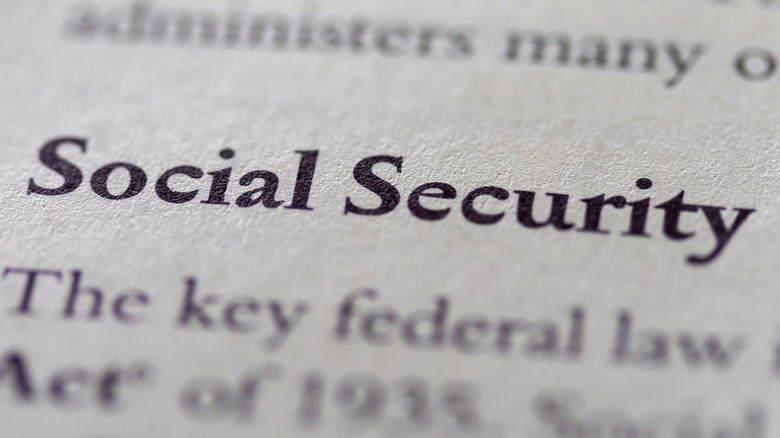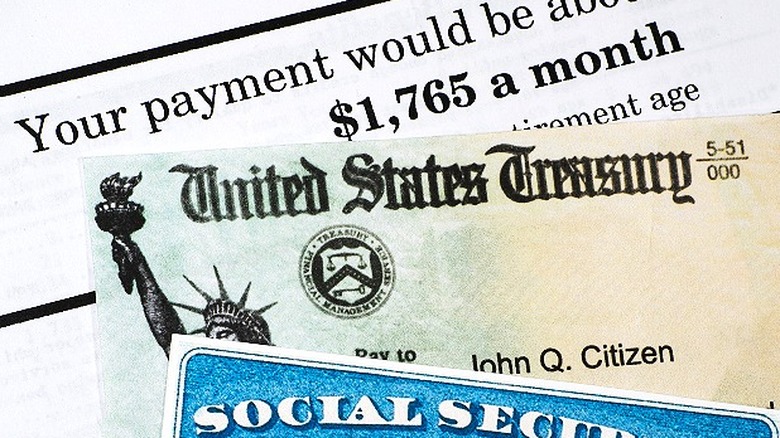Are You At Risk Of Never Receiving Social Security Benefits?
With inflation having risen in recent years and trust in government on the decline, it's no surprise that nearly 50% of Gen Z'ers believe they will receive a meager amount of Social Security benefits upon retirement. Albeit, without any reform to America's Social Security Trust Funds, by 2035, even younger retirees could see significant cuts to the amount of money they'll receive. The combined Social Security Trust Funds of America are projected to entirely run out of funds by 2035 if no changes are made to the program. However, this wouldn't necessarily mean that US citizens wouldn't receive any Social Security benefits. Instead, they would likely only receive 75-83% of what they are owed. In reality, at an individual level we have little control over what the future holds for us outside of creating a financial investment plan for its arrival.
But instead of worrying about how much less money young people will receive upon retirement compared to their parents, there's actually a much more pertinent question many haven't been pondering at all. A much more hellish scenario would be turning 62 and finding out you aren't even qualified to receive Social Security benefits in the first place. Certain groups of American workers today may never be or are not currently eligible to receive Social Security benefits when they retire. This is definitely a frightening notion, so here are the facts in order to discern how many of us fall into this category of U.S. workers.
Eligibility rules for Social Security
It's certainly a frightening notion to think that not every working member of American society will be eligible to receive Social Security benefits upon retirement. The good news is that the number of workers that fall into this category is actually exorbitantly small. Regardless, it's still crucial to be aware as to whether or not you are part of this slim majority, so let's take a deeper look at this matter to figure it out.
The first qualifying factor for eligibility of Social Security benefits is age. According to the Social Security Administration, the minimum qualifying age for social security is 62 years old. So if you die before you reach the age of 62, you won't be able to receive any Social Security benefits because, simply enough, you died before the qualifying age.
The next group of people who don't qualify for Social Security benefits are those who decided to retire in certain foreign countries. These countries include Cuba, Turkmenistan, Azerbaijan, Kazakhstan, Belarus, Kyrgyzstan, Uzbekistan, Tajikistan, and North Korea. Luckily, if you retire in any country outside of that list, you're still eligible to receive Social Security.
If you never paid into Social Security
The next factor as to whether or not you will be eligible for Social Security benefits is rather obvious. Simply put, if you have never worked a day in your life in the U.S., you're not eligible to receive Social Security benefits when you retire. According to the Social Security Administration, in order to qualify for Social Security benefits, you have to have earned a minimum of 40 Social Security credits, which is equal to 10 years of work. That being said, you still may be eligible to receive Social Security benefits through your spouse's working record in certain cases.
Another obvious group ineligible to receive Social Security benefits are illegal immigrants, unless they fall into the Department of Homeland Security's 7 categories of qualified immigrants. Legal immigrants and non US citizens still have a shot at receiving Social Security benefits if they have received the minimum of 40 Social Security credits. Retired immigrants who move to the United States over the age of 65 are also ineligible to receive Social Security, except for under certain conditions like entering into a totalization agreement. This essentially entails earning six work credits in the United States and combining them with benefits earned from one of the 30 countries the U.S. has an International Social Security Agreement with.
If you never had FICA taxes deducted
There are certain jobs you can work in the United States that don't allow or require individuals to take a portion of their paychecks to pay into the Social Security system. The most notable of these include railroad workers and certain government employees. Government (federal) employees that were employed prior to 1984 did not have taxes deducted from their paychecks to go towards Social Security. Their retirement benefits are instead covered by the Civil Service Retirement Program (CSRB.) However, in the case that you were hired by the government after 1984 you still are eligible to receive Social Security benefits upon retirement.
Certain railroad employees are also not eligible to receive Social Security under certain conditions. Instead, railroad workers employed in this industry for 10 years (or down to 5 years if they were hired after 1995) have their retirement benefits covered by a federal agency called the Railroad Retirement Board (RRB.)
If you evaded paying your taxes
The final group of people who may be ineligible for Social Security benefits are self-employed workers. However, this is only in the case that these workers choose to evade paying Social Security taxes for the course of their entire working life. This is simply because there won't be any record of them paying these taxes to Uncle Sam, which of course means there will be no way to obtain Social Security checks when they retire. Self-employed people who under-report their earnings may also face some difficulties when trying to acquire Social Security benefits. In reality, self-employed workers that pay their taxes earn Social Security credits the same way W2 (full-time) employees do, which is one credit for every $1,730 in net earnings, but no more than four credits per year of employment.
The bottom line is that the vast majority of Americans who contribute to the workforce will be eligible to receive Social Security benefits upon their retirement, as long as they do not fall into the category of any of the aforementioned examples. If there is any confusion as to whether or not you fall into any of these categories, it's important to consult with a professional or create an account on the Social Security Administration's website to make sure. Because as they say, it's better to be safe than sorry.




